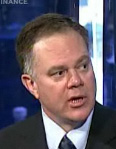Is the net energy of renewables high enough to actually power human civilization? Or will replacing fossil fuels prove too difficult on an energetic basis? What is the state of the art in net energy analysis, and can biophysical economics yet prove to be policy relevant, and not just an arcane field of study that only interests academics? What’s the trajectory of EROI for various fuels, and what’s the right way to compare them?
If you’ve heard that the net energy of renewables is too low to run society, and that as a result the renewable energy transition is destined to fail…then you need to listen to this interview with net energy researcher Rembrandt Koppelaar and check out his new research. His findings will probably surprise you.
Geek rating: 8
Guest: Rembrandt Koppelaar is a Research Associate at the Institute for Integrated Economic Research (IIER), where he works on spatial supply and demand modelling of resource flows in city-regions within the disciplines known as urban metabolism and energy economics. He is also a doctoral research student at Imperial College London’s Centre for Environmental Policy, where he is working on improving the accuracy of electricity system simulations. Rembrandt holds an MSc in Development Economics and Management, and a BSc in Economics, both from Wageningen University, the Netherlands.
On Twitter: @R_Koppelaar
On the Web:






